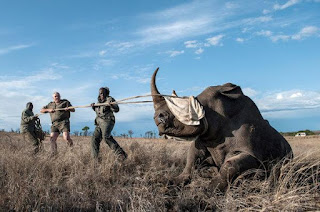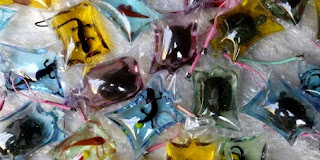What You Never Knew About Poaching
Poaching, to put it simply, is a deadly crime against wildlife. It refers to the illegal hunting and capturing of wild animals, in violation of local, state, federal, and international laws. Poaching is most commonly practiced in countries such as Zimbabwe and Kenya due to the wide variety of iconic wildlife there.
These wild animals are poached mainly for their valuable body parts, such as the tusks of an elephant, or the horn of a rhinoceros. It has been reported that more than fifty million different animals have been killed by hunters.
When you hear the word poaching, you will most probably think of the elephants and rhinoceros brutally killed and their tusks and horns shipped overseas illegally.
However, what many people do not know, is that there are large numbers of other animals are being poached. In fact, the most poached animal is the small, scaly pangolin.
Pangolins are small mammals most commonly found in Asia. Their entire body is covered in large scales made of keratin, the same substance our hair and nails are made of.
Pangolins are now an endangered animal - all eight species of pangolin are listed as threatened according to the IUCN Red List, with two being classified as critically endangered.
Pangolins are most commonly hunted for their scales which are used in traditional medicine and even in fashion. Scientists believe that over one million pangolins have been hunted and killed over the past decade.
The vast majority of poaching is caused by intelligent and organized groups of individuals that use high-powered technology and weapons to track and hunt animals without being detected. Such equipment includes night vision goggles, the AK-47 rifle, and grenade launchers.
There are three different kinds of poaching. The first being known as ‘Subsistence Poaching’. This involves members of communities killing wild animals for their meat in order to provide food for their families and other members of the community. This is commonly referred to as ‘bush meat’. Animals hunted for bushmeat can include, lions, elephants, zebras, and monkeys depending on the location.
The second type of poaching is ‘Structured or Commercial Poaching’, which basically means poaching for profit. These poachers are involved in high-risk criminal activities. This includes the hunting for bushmeat for the purposes of selling it. It also includes the illegal capture of wild animals to export them overseas as exotic pets in the illegal wildlife trade. And lastly, it also involves the killing of animals to harvest their parts, such as the hunting of bears for the paws and bile, and selling them on the black market for ridiculously high prices.
Lastly, the third type of poaching is known as ‘Chopper Poaching’. This involves poachers on low-flying helicopters or small planes tracking rhinos and other animals. Once they are at a close enough range to the animal, they will then dart them with an illegal substance which will knock the animal out. This method allows the poachers to approach and hack off whichever part of the animal they need without a fight. The illegal substance is often not fatal, however, the animal will most likely bleed to death.
“Anything that is really rare and exotic is desirable. It’s a symbol of wealth, anything seen to be delicacy is now in vogue.” - Crawford Allan, senior director of the wildlife trade monitoring network TRAFFIC at World Wildlife Fund.
At the current rate we are hunting and killing these African animals, they may be gone within the next fifty years.
Studio Mylène is an independent illustration brand founded by Mylène Dosal, a graphic artist living in London but working remotely with all types of people. Being originally from Mexico City and half French, Mylène’s style is heavily influenced by magical realism and sweet romanticism. Her projects range from children’s book illustrations to branding and flat animation. When not working with clients, Studio Mylène focuses on supporting other female entrepreneurs and sharing stories about creativity and books. If you want to learn more about her work visit: studiomylene.com




Thanks for raising the awareness! I've signed the petition!
ReplyDeleteI love you for sticking up for the animals! I am on board with your work 👍👍👍
ReplyDeleteGreat informative post. It's so sad that man will use animals so he can profit.
ReplyDeletePosts like this make me sick to my stomach. I do not understand why there are people who are capable of such disgusting things!! Thank you for writing the post. Although it makes me really really sad, I think its important to raise awareness about these things and maybe one day it will come to an end
ReplyDeleteThank you for writing this post! I am a big advocate for for fishing and hunting - only when it is regulated and ETHICAL. This type of situation is not OK. It makes me absolutely sick.
ReplyDeleteI just do not understand why people want to do this. Thank you for writing this.
ReplyDeleteSo sad! I had no idea the pangolin was being poached... thank for you raising awareness! Hopefully things will change
ReplyDeleteI will never understand why people poach! I am fully behind hunting and fishing but there are laws for a reason. It is sad when we lose a species because of greed and ignorance.
ReplyDeleteYou do such a great job of raising awareness! I hope you keep it up.
ReplyDeleteVery informative article..poaching is sadly going on in most parts of the world ..thank you for raising such an important issue..
ReplyDeleteThis animals are just too pure to hurt. People can be sick!
ReplyDeleteI love that you are here for the animals, not everyone is but more people need to be!
ReplyDeleteThank you for sharing this article. It’s people like you that keep the awareness in the forefront.
ReplyDeleteThank you for this article. I didn't know about Pangolins and thank you for educating me and others on this terrible practice.
ReplyDeleteI love the awareness you are raising via your blog! The chopper poaching was quite shocking to read, i didn't know about that:(((. Sounds so cruel!!
ReplyDeleteOh my god.. Pangolins are my favorite animals! Thank you for spreading the word about the horror that is poaching. Good on you!
ReplyDeleteWe can all do more to help! A friend of mine rescues pengolins and the things that happen to these defenceless creatures is shocking!
ReplyDeleteExtremely sad to hear about poaching..
ReplyDeleteThanks to you who have kept us informed about this ..
This article was really informative..
I love animals ..
Thank you so much for sharing this information.
As an animal lover, I am always saddened to hear about animals being poached. Thanks for bringing this very important issue to the forefront.
ReplyDeleteCan you guys start using sources/ in text citations, it give your blog post more credibility and sound less like an emotionally charged column.
ReplyDelete